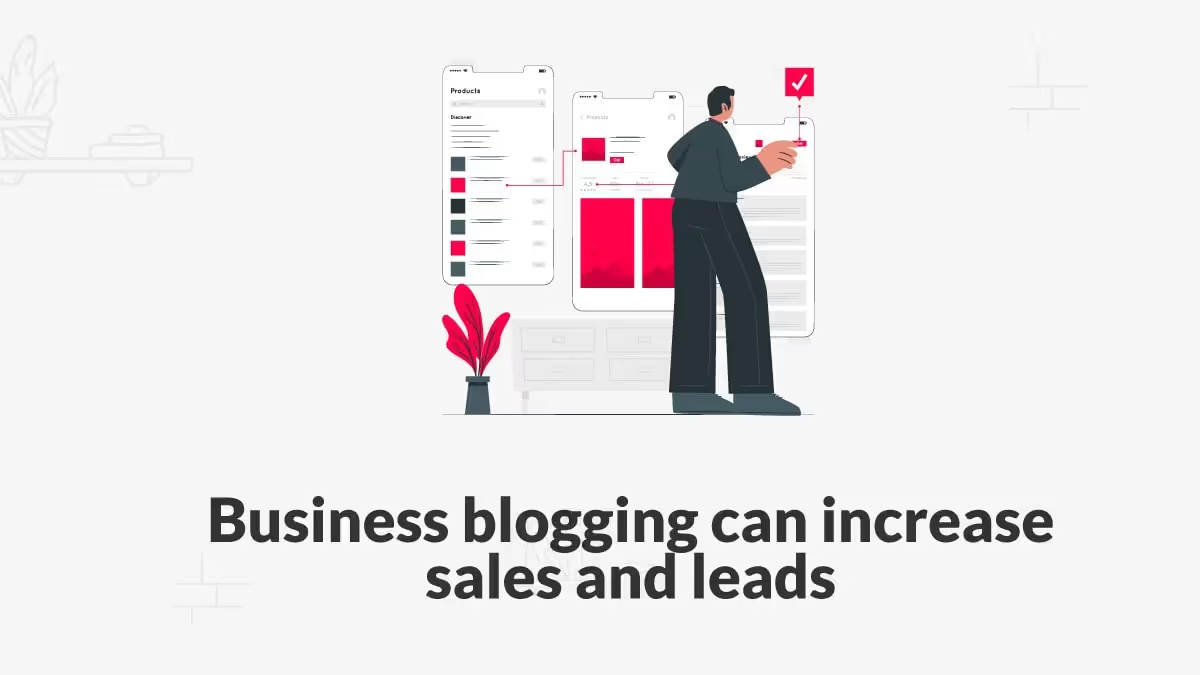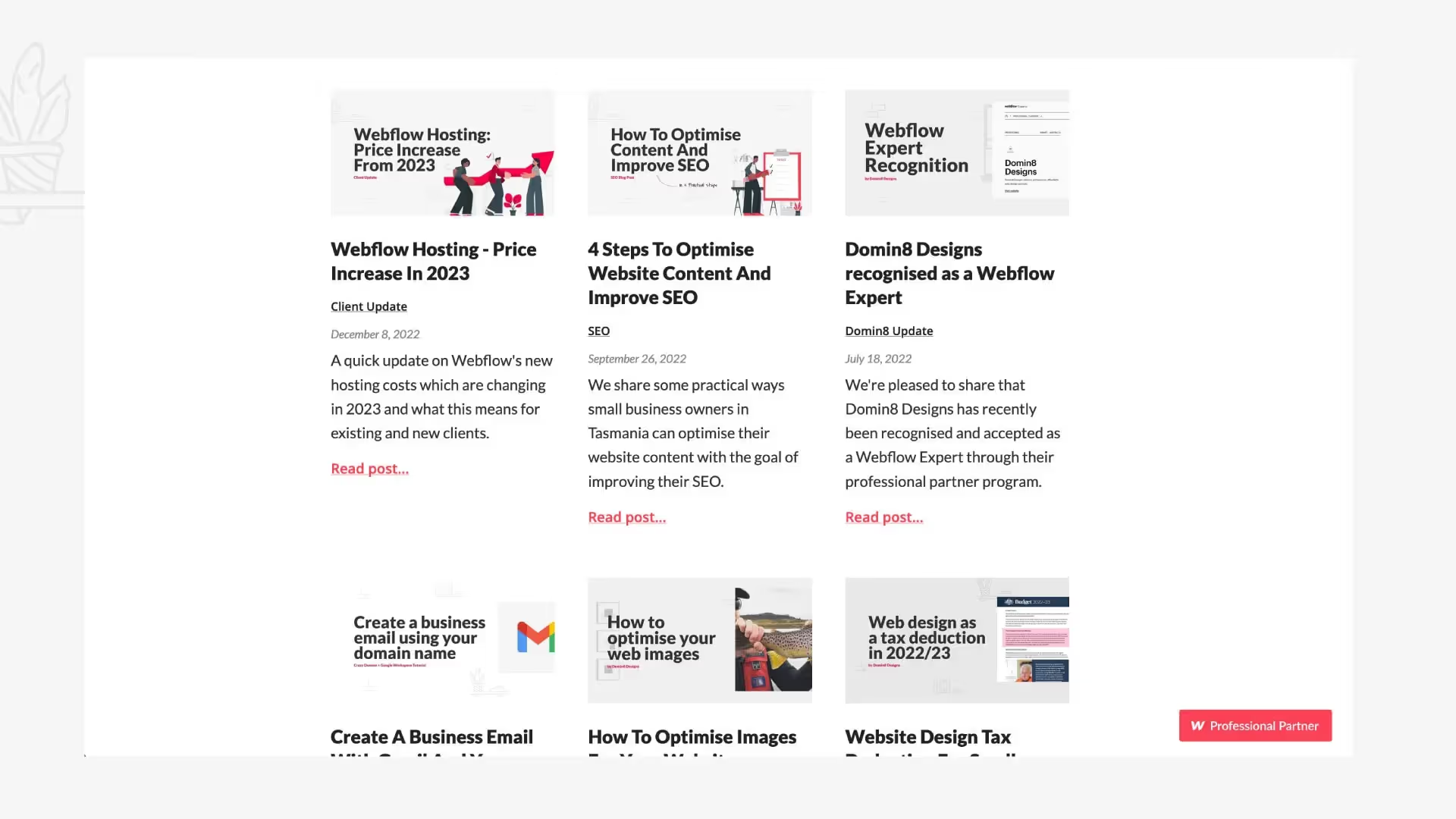Many business owners and organisations toss up the thought of adding a blog to their website, whether it's a brand new site or an existing one.
A blog (short for 'weblog') is a collection of written posts, called blog posts, that usually appear in date order from newest to oldest.
Blogging for business can be in the form of a dedicated website, or a separate area of a website, like the Wakeford Digital blog for example.
Business blogs are often on a range of topics, usually displayed in date order, and can be a platform for people to share their thoughts, experiences, insights and knowledge with their audience.
While people and in particularly blog for many reasons, a blog is beneficial for businesses and organisations because:
This greatly helps increase search engine rankings which can lead to more visits from search engines. New traffic also means an increase in visitors to your website.
Particularly when combined with call to actions, as well as internal links to products and services, a blog can become a powerful marketing tool.
A consistent and informative blog can provide information and insight to your target audience, positioning yourself as an industry leader and expert in your field along with building trust within your community.

One of the first considerations when tossing up if a blog is right for your business or organisation is the commitment.
If you already struggle with finding the time to maintain your website, there may be other time and cost-effective avenues that can benefit your business (such as digital marketing or social media advertising).
That said, an informative and consistent blog can be a powerful tool to grow your business in 2023 - so you might also use a blog to help kickstart your website strategy such as making time to post once a month and using this time to review other website content.
Getting started with a blog is also a major step and often the best way to know if a blog is right for you is to start writing and see where your efforts take you.
If you're interested in getting starting with business blogging in 2023 and think it's the right avenue for you, here are some tips to help get you started or increase those writing juices:
A five post commitment can help ensure that you're serious about blogging for your website.
While it can be exciting to write your first post and publish it immediately, having at least five posts is a great way to develop a foundation of content for your website and help encourage visitors to come back for more.
It can be exciting to write your first five blog posts and share these with the world - only to not write another post for the next year because other things got in the way.
Consistency is key when writing and maintaining a blog, so set a reasonable schedule as this will help manage reader expectations too.
Instead of aiming for one blog post a week because that's what everyone else is doing, it's perhaps better to start with one blog post a month, tick this goal and have others in reserve.
Having a plan about what you'll write and the categories the posts are organised in can really help keep to your blogging schedule and goals.
Helpful tip:
On whatever medium (paper, spreadsheet, napkin), write down a list of content pillars - i.e. the overarching topics you'll write about, for example:
Under each of these categories, start listing the topics you want to write about. For example, some blog post ideas might be "How to optimise your website for search engine optimisation", "Best website design practices for small business owners," or "Content marketing on a budget in 2023."
You can also use client questions or online tools (such as Google search recommendations) to help inform these topics and get you started with writing blog posts.
Another consideration is also around what format each blog post is - for example, are you providing helpful tips, a download, a list of best features or is it longer form content. A good way to inform this is to analyse the top few results currently on search engines for similar posts and the format of this content.

Many people think that each blog post has to be an essay - and while longer form content has its place, this doesn't mean your website blog needs to do the same.
Let the content dictate the length - if it's expanding on a knowledge base then perhaps this is longer content, while updates and other thoughts can be short and sweet.
If writing shorter posts also helps keep you adding content to your blog, then this should also be considered in your strategy.
One of the major benefits of a blog is attracting new visitors to your website through search engine searches - that is, your blog posts rank well on a search engine results page and new people find your website through it.
Doing some simple keyword research (finding and implementing words and phrases that people are actually searching) can help boost the chances of getting your blog and its posts found online through search engines.
There are many search engine optimisation tools out there to perform keyword research such as Ubersuggest, AHREFS, SEMRush - or for a quick option, use Google's search suggestions (at the bottom of a page of a search) or rich snippets (the dropdown areas that appear on some searches) to get insight into what others are searching.
If you're a bit stuck with SEO, we provide affordable and effective SEO campaigns for businesses in Hobart and across Tasmania to help drive traffic to your website.
Another important tip when thinking about blogging for business is to think about your target audience.
At Wakeford Digital for example, we could write all day about Webflow and it's tips and tricks, but Webflow users aren't our ideal customers - small businesses, organisations, not for profits, eCommerce businesses and individuals are - so our content is more tailored to these industries and the questions or problems they face.
While organic (or search engine) traffic is a real bonus of blogging, many business owners write fifty posts with little to no boost in traffic or sales and leads. It's important to think about how to share your content once it's written or developed. Some ideas we often use here at Wakeford Digital include:
Another consideration is where your blog will be stored - or 'blog hosting'. Platforms like Webflow are self hosted and have an inbuilt content management system, which is great because you don't need to worry about also arranging a host - but if you're considering a Wordpress site or similar for your blog, you may also need to consider finding a hosting company too.
It's always a fantastic feeling when you notice engagement with your blog posts, whether this be through search engines or on social media.
Blogging can be a great way for businesses to boost sales, but also importantly engage with the relevant community and help inform those around you.
While writing your first blog post can be a challenge, once you get consistency in the process of writing posts and creating content it can be a rewarding experience.
If you've ever wanted to create a blog, 2023 is the perfect time to get started - however if you have some further questions or don't know where to start in setting up a blogging website, feel free to get in touch with us as we're always happy to help.
Happy blogging!

